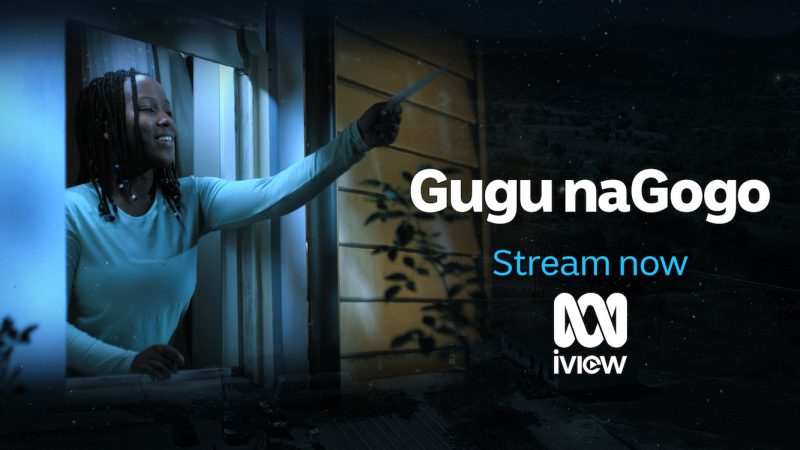Taku Mbudzi is a Zimbabwe-born storyteller who first moved to Australia 20 years ago as an architecture student. She now works as a writer, filmmaker, podcaster and stand-up comic, using humour to inspire children to speak up and out for themselves. Her first foray into storytelling in a public arena was at five years old at a community event in Muture, Zimbabwe, inspired and cheered on by her beloved grandmother.
Taku has an impressive list of screenwriting credits including kids’ productions like The Wonder Gang and Big Words Small Stories, and she’s currently developing her first teen drama series, Tanaka’s Mix. With extensive experience as an audio storyteller, her 2017 radio play JoYOLO led to a book publishing deal with Allen & Unwin. Her young adult novel, due in 2023, is also slated to be her first feature film production. It’s clear that Taku operates with inspiration and leadership as she has also received several business awards for her service to the African community in Australia.
In this interview, Taku tells us about her faith, the magic in trying, receiving honest feedback from her 3-year-old daughter and her latest project Gugo naGogo, a short film which celebrates the friendship between a young girl and her grandmother who are separated between Australia and Zimbabwe.
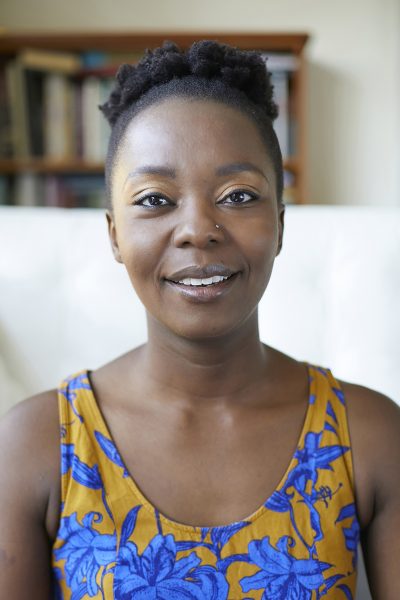
Tell us a little bit about yourself and what you do.
My name is Taku Mbudzi and I’m a Zimbabwe-born storyteller based in Naarm (Melbourne), Australia. I love experimenting with how I share my tales and primarily do so through filmmaking, podcasting, writing and stand-up comedy. I also love to teach and share what I’m learning, particularly with young people.
How did you start your creative practice and why?
I originally moved to Australia twenty years ago to study architecture as an international student. Over time I found I was more interested in telling the story of why we needed a building, rather than figuring out the literal nuts and bolts of how to construct it. I eventually made the radical decision to quit architecture to pursue a public speaking career, which led to sharing my stories with thousands of schoolkids around Australia. That led to publishing my first picture book and then deciding to make screen and audio content for children. In the last five years since moving to Melbourne, I’ve loved collaborating with different creatives and organisations to produce my stories, focusing on using humour to help young people speak up and out for themselves.
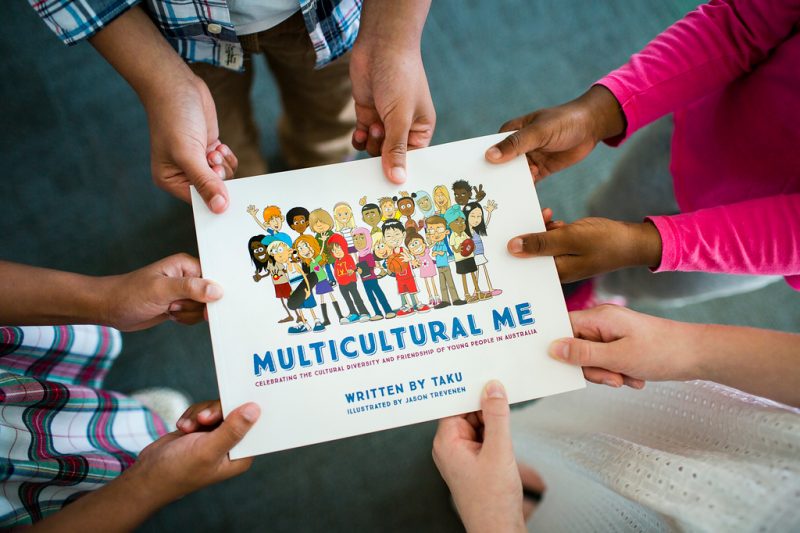
Where did you grow up and how has it influenced your practice?
I grew up in the city of Harare, in Zimbabwe. I also spent a lot of time staying with family in Mutare, Birchenough Bridge, Buhera and Checheche. I have fond memories of large family gatherings, community events and always having some relative or other visiting us.
As for storytelling, my first memory of sharing a story to a large audience happened when I was about five years old at an event in Mutare. I remember my maternal grandmother, Gogo Makuyana, waving her hands back and forth madly like an aircraft marshal until the joyous crowd of hundreds stopped dancing and singing. Then she gently pushed me forward and told me to stand tall and speak.
Up until that point, I’d spent most of the event ignoring her not-so- subtle nods and side-eyes, signalling me to hail the crowd myself. I was too scared! So when the crowd finally settled down, waiting for me to talk, I looked at my Gogo and her cheeky grin encouraged me to give my first public speech. I don’t recall what five-year-old dramas I shared that day but everyone cheered and ululated after I was done, my grandmother loudest and proudest of them all.
Decades later, I am constantly inspired by memories like this as well as the things I’m still learning about my family and my culture. Those inextricable parts of my identity are infused into my practice, how I express myself and how I show up in the world.
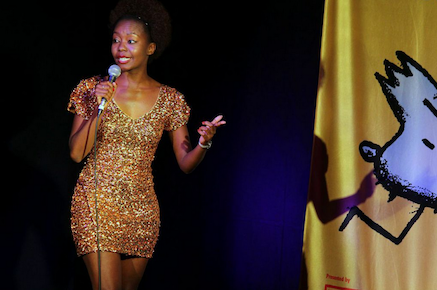
Tell us about your past creative projects. What has been your most treasured creation or a highlight so far?
I feel fortunate that I’ve been able to try so many creative ideas over the last sixteen years in business In Australia. It’s really difficult to pick one treasured highlight because they are all special in their own way.
At the moment, I’m thrilled that my three-year-old daughter can watch my film Gugu naGogo and the other kids’ television shows that I’ve written for. I love hearing her honest feedback because she’s one of my biggest inspirations.
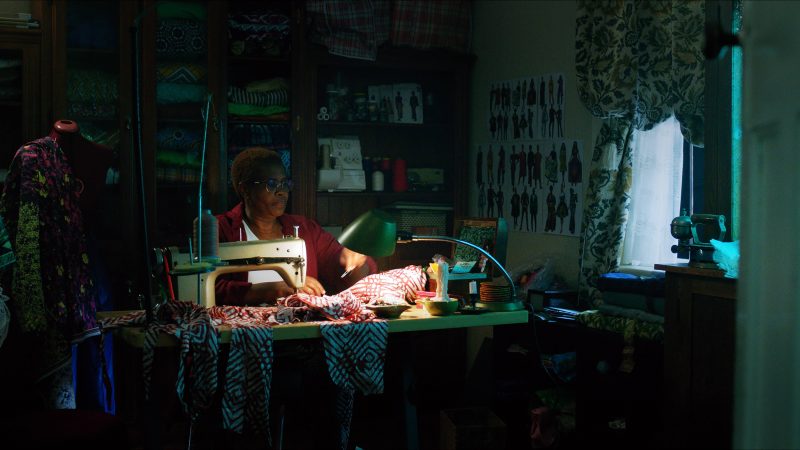
Tell us about your current project?
My latest project is a short film called Gugu naGogo, one of four films in The Kaleidoscope Project, a joint ABC and Screen Australia initiative.
Synopsis: When a lunar eclipse stops her late-night letter exchanges, 12-year-old astronomer Gugu must find a way to reconnect with her beloved Gogo (grandmother) who lives far away in Zimbabwe.
Gugu naGogo celebrates the sweet friendship of a young girl and her grandmother, who are separated between Australia and Zimbabwe. I wrote the story at the beginning of the pandemic curious to explore how children stay connected to their Gogos (grandmothers) when they can’t see them? In my film it’s estrangement that strains the family’s connection. My vision was to show how children of Zimbabwean heritage living in Australia have similar experiences to other kids around the world — missing family, handling parents and navigating friendship.
Though making Gugu naGogo is one of the most challenging things I have ever done, my faith and my maternal grandmother’s spirit kept me grounded through it all. I am grateful for the delightful and unexpected things I discovered about my Zimbabwean culture, my family and myself.
Stream Gugu naGogo on iview: https://iview.abc.net.au/show/gugu-nagogo
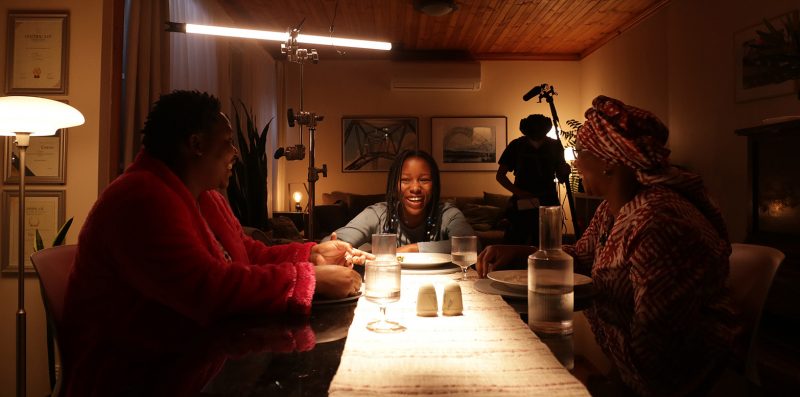
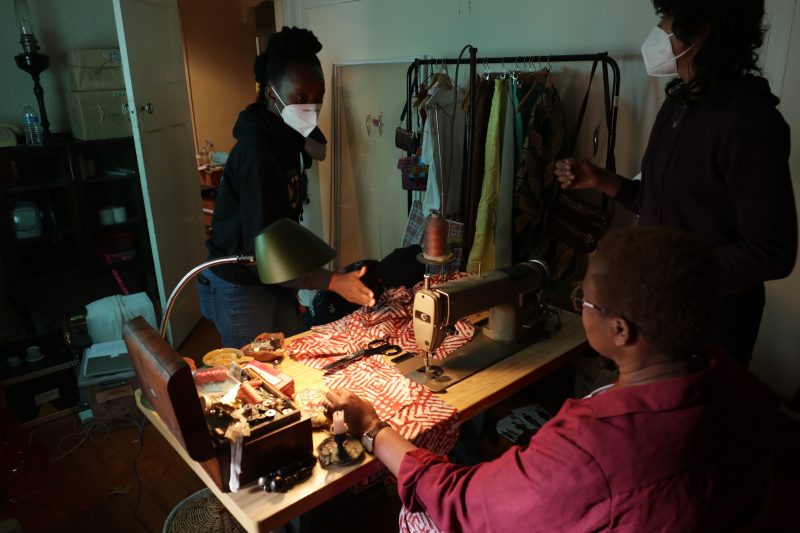
Who or what inspires your practice?
My Christian faith plays a large role in grounding my creative practice. I am also inspired by my family, friends, other artists and the world around me. I also love how often I find inspiration in the most unexpected of places.
Where do you feel most creative and why?
I definitely love my ‘quiet time’ in the mornings and evenings at home. I love sitting with my pen, notebook and a cuppa, writing or sketching away. I need this time to recharge before I step out for collaborative meetings or performances, and then the reverse at the end of the day when I need to release everything before resting. My creative flow is often spontaneous and can happen anywhere and anytime during the day, but my quiet time is when I can best catch and process my creative juices on paper.
What do you hope audiences take from your work?
I hope they can see that my joy comes from my stepping out and trying, especially when there’s no guarantee of success or perfection. That’s where the magic lives and I hope they’re inspired to pursue their own creative ideas too.
What future projects are you looking forward to?
I’m quietly developing my own stand-up comedy special / docuseries to make the women in my community laugh. Many of them supported me through tough times this year as I made Gugu naGogo — now that’s the film’s done, I’m excited to share my new jokes with them.
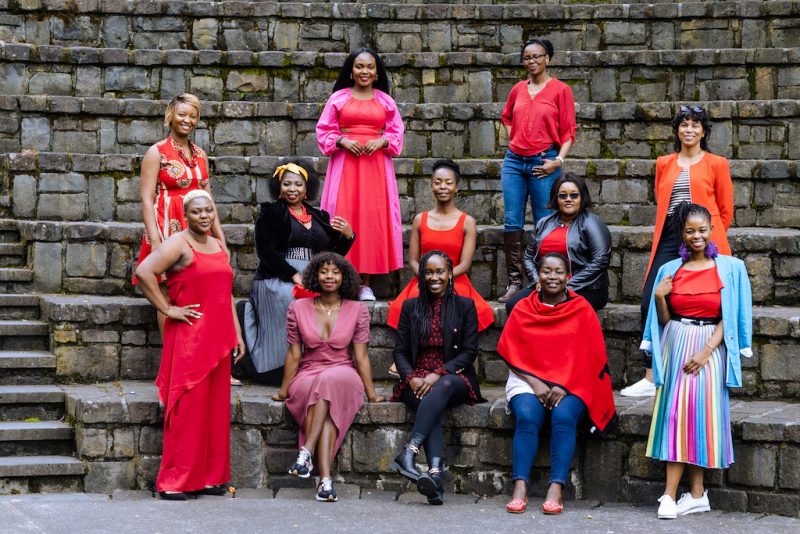
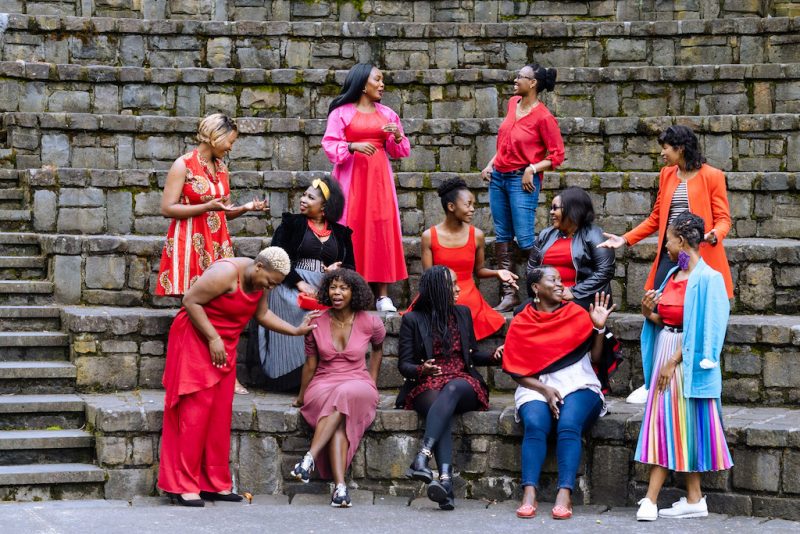
Middle row (l-r): Amanda Mudege-Fleischer, Judith Mari, Taku Mbudzi, Yandisa Xundu, Karine Larché
Bottom row (l-r): Ruvimbo Ndoro, Ratidzo Mambo, Jacqui Kairu, Aunty Vongai Nzenza, Dorcas Maphakela
Photos by Rukietu C.
Whose work are you digging at the moment?
Right now, I’m deeply inspired by my fellow Kaleidoscope Project filmmakers. Their films are beautiful and behind the scenes we’ve formed a special bond, supporting each other in our filmmaking and creative practices.

Watch us speaking about what community-led content creation means to us here: https://vimeo.com/770706763
Links to all our films here: https://linktr.ee/kaleidoscopeproject
Viv’s Silly Mango: Mary Duong (writer/producer), Rae Choi (writer/producer), Rachel Maxine Anderson (director), Namaste Yoga: Ravi Chand (writer/director/producer/actor), Yaz Queens: Lara Köse (writer/director) and William Duan (producer).
Where can we find and follow you online?
Website: https://taku.com.au/
Two Words with Taku podcast about my writing and storytelling adventures: https://omny.fm/shows/two-words-with-taku
Instagram: https://www.instagram.com/takumbudzi/
